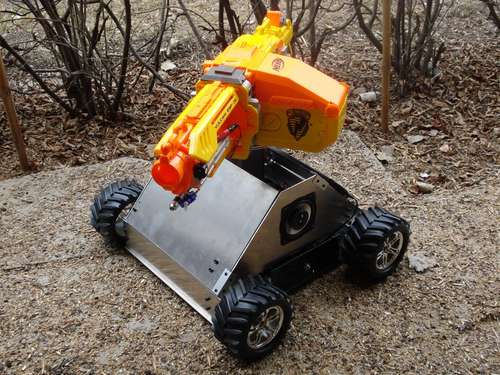
European scientists and engineers have developed RoboEarth, the World Wide Web for robots, to allow robots to learn from the experience of their peers,

By DAVID GELERNTER If you want to repair a fancy race car at a pit stop, you could have a master mechanic go over the whole thing. Or you could hire a bunch of specialists—for the engine, brakes, suspension, tires—and have them swarm all over the car simultaneously. The crowd of specialists would do the job faster. And if you add more specialists (one for the front wheels, say, and one for the back), the job would go even faster. More Can a Computer Win on 'Jeopardy'? That's a big

Smaller and more energy-efficient electronic chips could be made using molybdenite. This material has distinct advantages over traditional silicon or graphene for use in electronics applications.

How do you use a scientific method to measure the intelligence of a human being, an animal, a machine or an extra-terrestrial? So far this has not been possible, but researchers have taken a first step towards this by presenting the foundations to be used as a basis for this method, and have also put forward a new intelligence test.

Disabled and elderly people could find it easier to navigate around town and city centers with a new hand-held computer being developed by a geographical information systems.

Researchers from North Carolina State University have developed a single “unified” device that can perform both volatile and nonvolatile memory

In a first-of-its-kind experiment, University of Vermont roboticist Josh Bongard created both simulated and actual robots that, like tadpoles becoming

Researchers have developed a curvilinear camera, much like the human eye, with the significant feature of a zoom capability, unlike the human eye. The

More and more robots are being designed to handle the jobs now done by white-collar office workers. For instance, the HRP-4 humanoid robot ($350,000),

Scientists at the University of Massachusetts Lowell laugh in the face of Intel

They walk, they dance, they...perform surgeries? Take a look at some of the best robotic creations of 2010!